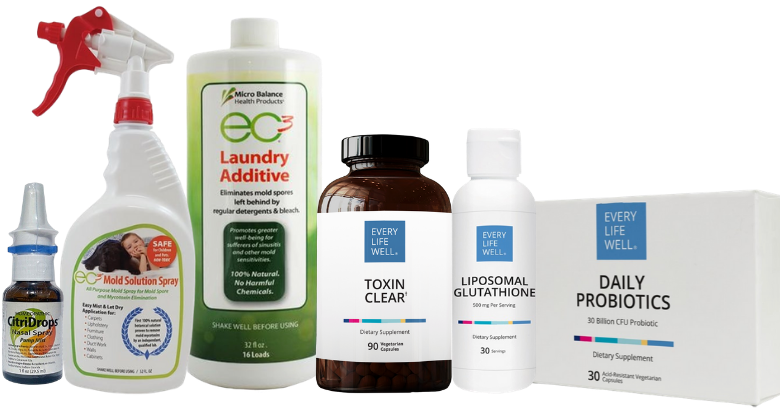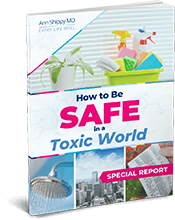While most people who contract SARS-CoV-2, the coronavirus that causes COVID-19, have mild to moderate cases that dissipate quickly, some will experience lingering symptoms. Some will experience intense and debilitating fatigue.
As symptoms persist and a normal level of health doesn’t return, it’s not surprising that people are searching for answers and support from the medical community.
Functional Medicine doctors are at the forefront of treating those experiencing post-COVID symptoms. We are already used to listening to a patient’s story, uncovering root causes and treating each case uniquely.
Plus we have a lot of tools in our tool kit – both allopathic and integrative – as well as the time it takes to really impact the health of our patients from the underlying imbalances responsible for discomfort.
In this article, I’m going to dive deeper into Post-COVID syndrome; what it is, what’s behind it and some action steps to consider. You will learn more about:
- Post-COVID Syndrome
- The link between Post-COVID Syndrome and Chronic Fatigue Syndrome
- Why understanding the root cause will shape the treatment approach
- Foundational pieces to supporting patients with Post-COVID Syndrome
Let’s get going!
What Is Post–COVID Syndrome?
According to the World Health Organization (WHO) most people will recover from COVID-19, the disease caused by the SARS-CoV-2 virus, in around 2 to 6 weeks. With those who’ve had severe COVID-19 illness, who were hospitalized or on the ventilator, we might expect longer recovery times and fatigue because of lost muscle mass and damage to the lungs and other organs.
One study published in the Journal of the American Medical Association of COVID-19 patients who were hospitalized, eighty percent were still experiencing symptoms after 2 months.
However, there are a growing number of mild to moderate COVID-19 cases where people are experiencing fatigue and other symptoms that last for months, well beyond the typical viral recovery time. This is what we are talking about with Post-COVID Syndrome.
Post-COVID Syndrome, also being referred to as Post-Viral Syndrome, Post-Viral Fatigue or Post-Viral Fatigue Syndrome is not actually a new phenomenon in medicine.
We’ve seen some people react similarly after viral infections including Epstein-Barr virus, Severe Acute Respiratory Syndrome (SARS) from the SARS-CoV-1 virus, West Nile virus, H1N1 influenza and others. In these cases, some experience long-term illness and malaise lasting for months after the initial infection. Some go on to develop chronic disease.
Given these patterns of viral infections triggering disease, what we are seeing with COVID-19 is actually fitting into the pattern of the viruses that have come before it.
Is Post-COVID Syndrome Actually Chronic Fatigue?
In my practice, I’ve seen viral illness trigger autoimmune disease, Fibromyalgia and Chronic Fatigue Syndrome (CFS). In fact, Post-COVID Syndrome or Post-Viral Syndrome is quite similar to Chronic Fatigue Syndrome.
Even Dr. Anthony Fauci, Director of the National Institute of Allergy and Infectious Disease, sees the parallels. He states that Post-COVID Syndrome is “highly suggestive” of Chronic Fatigue Syndrome.
Understanding chronic fatigue might shed some light onto what people are experiencing after the initial COVID-19 infection.
Chronic Fatigue Syndrome, or Myalgic Encephalomyelitis as it is now known, affects 2.5 million Americans according to the Centers for Disease Control.
Chronic Fatigue Syndrome is mainly characterized by exhaustion that doesn’t resolve from rest and is quite debilitating. Often patients see many doctors, for years, without answers.
For a Chronic Fatigue Syndrome diagnosis other causes of fatigue must be ruled out, such as anemia or hypothyroid, and a patient must have fatigue along with at least four of the following for 6 months or longer:
- Fatigue and weakness with exertion (physical, emotional or cognitive)
- Unrefreshing sleep
- Impaired memory or concentration
- Muscle pain
- Joint pain
- Sore throat
- Tender lymph nodes
- New headaches
Post-COVID Syndrome suffers report the same or similar symptoms, while some may experience additional symptoms that include:
- Shortness of breath
- Loss of taste or smell
- Brain fog
- Rapid heart rate
- Digestive symptoms
A Root Cause Approach
Chronic Fatigue Syndrome stumps the traditional medical community because there isn’t a medication or therapy that “fixes” the constellation of symptoms. Often doctors will approach each symptom individually leaving a patient with many treatment plans for the many symptoms they are experiencing, but without resolution.
This is where Functional Medicine is uniquely poised to help Chronic Fatigue Syndrome – and Post-COVID Syndrome – patients.
Functional Medicine doctors are trained to take a root cause approach. By addressing the root causes, we affect all symptoms where they start.
Possible root causes to CFS include:
- Celiac disease
- Food sensitivities
- Heavy metal or glyphosate toxicity
- Chronic infections
- Mitochondrial dysfunction
- Mast cell activation, elevated histamine response
Any of these situations, or a combination, may trigger the physiology that creates fatigue and other symptoms. This is one reason that it is so important for doctors to spend the time hearing their patients’ story and developing a timeline. If symptoms started after food poisoning, shingles or COVID-19 it might mean the immune system didn’t fully do its job fighting that infection.
A viral trigger for chronic symptoms will require a different approach than treatment for someone whose symptoms were triggered by gluten or toxins.
Post-COVID Syndrome Action Steps
In my practice, I’ve had great success treating COVID-19 with Hydroxychloroquine (Planquenil) + Azithromycin + vitamin C + Zinc and other supplements. I’ve added Ivermictin for some patients. This protocol has worked for all of my patients that have needed it so far. It is important to be monitored by a doctor by checking oxygen levels and daily EKG’s at home.
Taking a holistic view of Post-COVID Syndrome and appreciating its overlap with Chronic Fatigue Syndrome is important.
To everyone recovering from COVID-19 who is having lingering symptoms, I see you and believe what you are experiencing. It is possible to help your body to recover fully.
From my Functional Medicine perspective, here are some areas to consider.
1. Don’t forget the basics. A whole food and anti-inflammatory diet, adequate movement, regular sleep patterns and stress management will take you far for prevention, immune support and recovery from a viral infection. If these aren’t in place, this is the time to begin planting the seeds for your future health.
2. Reduce toxin exposures, known as the “Exposome.” All of the exposures we face from our air, water, cosmetics, cleaning products, food, and other sources contribute to a body burden and lessen the body’s ability to effectively fight an infection. Like tip #1, this requires taking a look at your life and committing to long-term lifestyle changes. Working with a Functional Medicine doctor for testing and personalized detoxification protocols is also very helpful.
3. Support the immune system. Immune support prior to, during an acute infection and during recovery from COVID-19 is helpful. Read more about my immune support recommendations, and my Post-Virus Support Kit on my shop. Immune support supplements include vitamin C, zinc, EGCG, vitamin D, NAC and more.
4. Consider glutathione. Glutathione is the body’s master anti-oxidant, important for protecting cells from the damage caused by viruses and other infections. Glutathione also plays a key role in detoxification and immune health.
Glutathione deficiency has been linked to serious illness from COVID-19 and glutathione therapy is potentially a beneficial treatment during the illness and throughout recovery.
Internally, I recommend liposomal glutathione for the best bioavailability. Glutathione can also be nebulized for direct effect on the lungs. To amplify the effect of glutathione, build your sulfur pool by eating at least 1 serving of cruciferous veggies daily such as broccoli, arugula, cabbage or cauliflower.
5. Support your mitochondria. The mitochondria are the site of energy production in cells, where we turn calories into ATP. Mitochondria are easily damaged by free radicals and infections. Mitochondrial dysfunction often plays a role in chronic fatigue. It makes sense, right?
If your cells can’t effectively turn fuel into energy, they won’t be able to perform their daily jobs and you will feel tired.
Mitochondrial support includes nutrients such as acetyl-l-carnitine, alpha lipoic acid, NAD+ and others. I put together a mitochondrial bundle just for this purpose.
6. Consider elevated histamine levels. Viral infections can trigger the immune system to release additional histamines. It can be helpful to adopt a low histamine diet, take natural supplements (such as Hist-Assist and Histamine Support) and medications that reduce histamines (such as zyrtec and pepcid).
7. Support the vascular system. We now know that one of the reasons some patients are more affected by the virus is if they develop a coagulopathy, which is easiest for me to describe as sludging of some of the capillary beds. When severe, can lead to heart attacks and strokes. To help with repair of the vascular system, Vein Support, Berkeley Life Nitric Oxide Support, and fish oil can be helpful.
8. Address all your root causes. Just because a virus was the trigger for symptoms, doesn’t mean that other factors didn’t contribute. Be sure to work with a knowledgeable practitioner who can help you uncover food allergies or sensitivities, autoimmunity, toxicity and other patterns. Since everything is connected in the body, this whole person view is key for long-term health and vitality.
It’s always important for doctors to listen to their patients. When a patient tells me something isn’t quite right, even if symptoms are not consistent or rather vague, I don’t dismiss their experience. Instead, I put on my detective hat and help them figure out the root.
What we are seeing in the time of COVID-19 is no exception. Some may have mild symptoms, be asymptomatic or not even know they had a COVID-19 infection, but this is an import event that may explain new or lingering symptoms.
Post-COVID Syndrome, although new to scene, isn’t a departure from the understanding of Functional Medicine. Ultimately, it may be the Functional Medicine approach that offers the best hope and recovery to those impacted by COVID-19-triggered fatigue.
References
- World Health Organization. Report of the WHO-China Joint Mission on Coronavirus Disease 2019 (COVID-19). (2020).
- Carfì, A., Bernabei, R., Landi, F., & Gemelli Against COVID-19 Post-Acute Care Study Group (2020). Persistent Symptoms in Patients After Acute COVID-19. JAMA, 324(6), 603–605. Advance online publication.
- Centers for Disease Control. Myalgic Encephalomyelitis/Chronic Fatigue Syndrome.
- Yancey, J. R., & Thomas, S. M. (2012). Chronic fatigue syndrome: diagnosis and treatment. American family physician, 86(8), 741–746.
- Polonikov A. (2020). Endogenous Deficiency of Glutathione as the Most Likely Cause of Serious Manifestations and Death in COVID-19 Patients. ACS infectious diseases, 6(7), 1558–1562.
- Rasa, S., Nora-Krukle, Z., Henning, N., Eliassen, E., Shikova, E., Harrer, T., Scheibenbogen, C., Murovska, M., Prusty, B. K., & European Network on ME/CFS (EUROMENE) (2018). Chronic viral infections in myalgic encephalomyelitis/chronic fatigue syndrome (ME/CFS). Journal of translational medicine, 16(1), 268.
- Lacourt, T. E., Vichaya, E. G., Chiu, G. S., Dantzer, R., & Heijnen, C. J. (2018). The High Costs of Low-Grade Inflammation: Persistent Fatigue as a Consequence of Reduced Cellular-Energy Availability and Non-adaptive Energy Expenditure. Frontiers in behavioral neuroscience, 12, 78.













